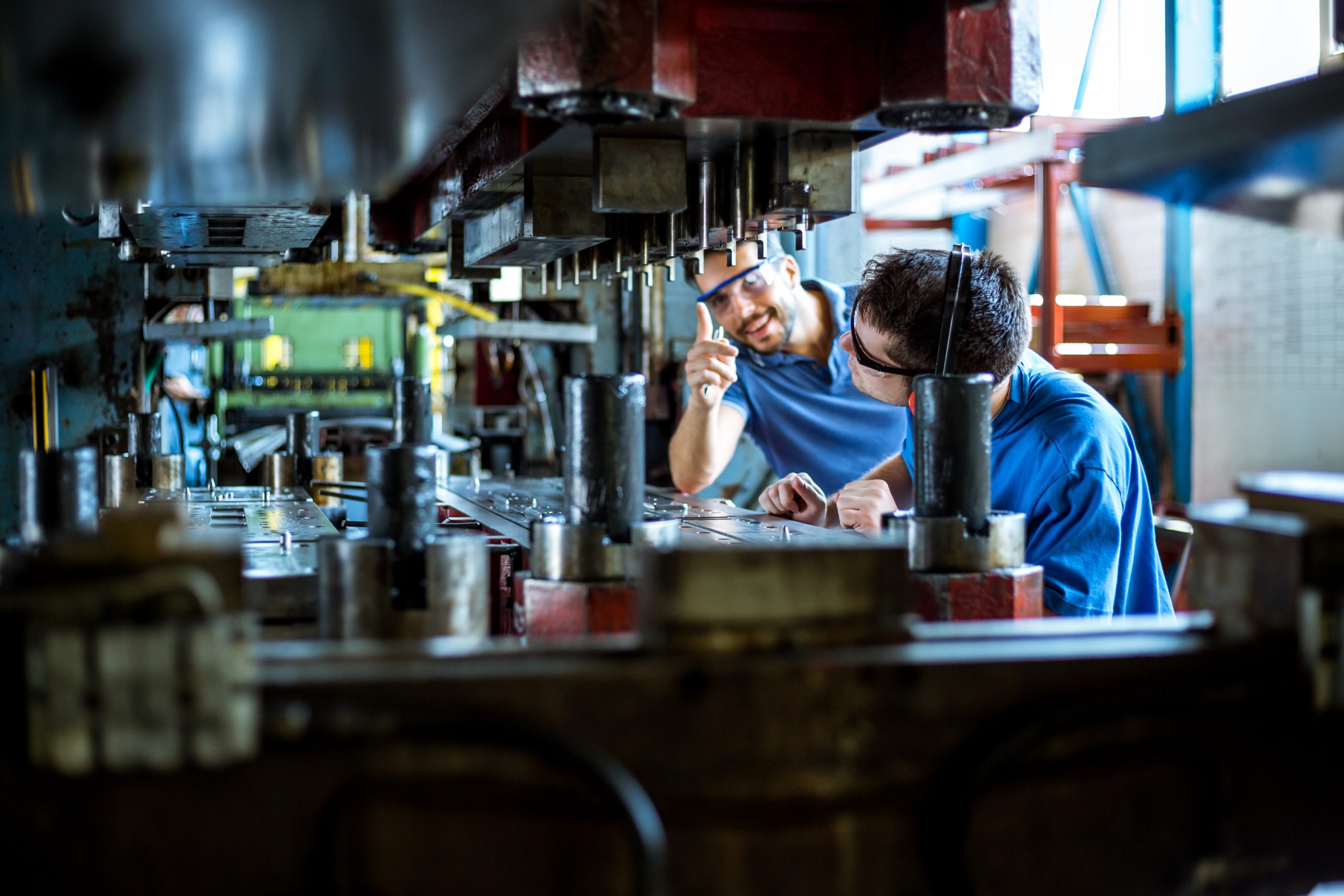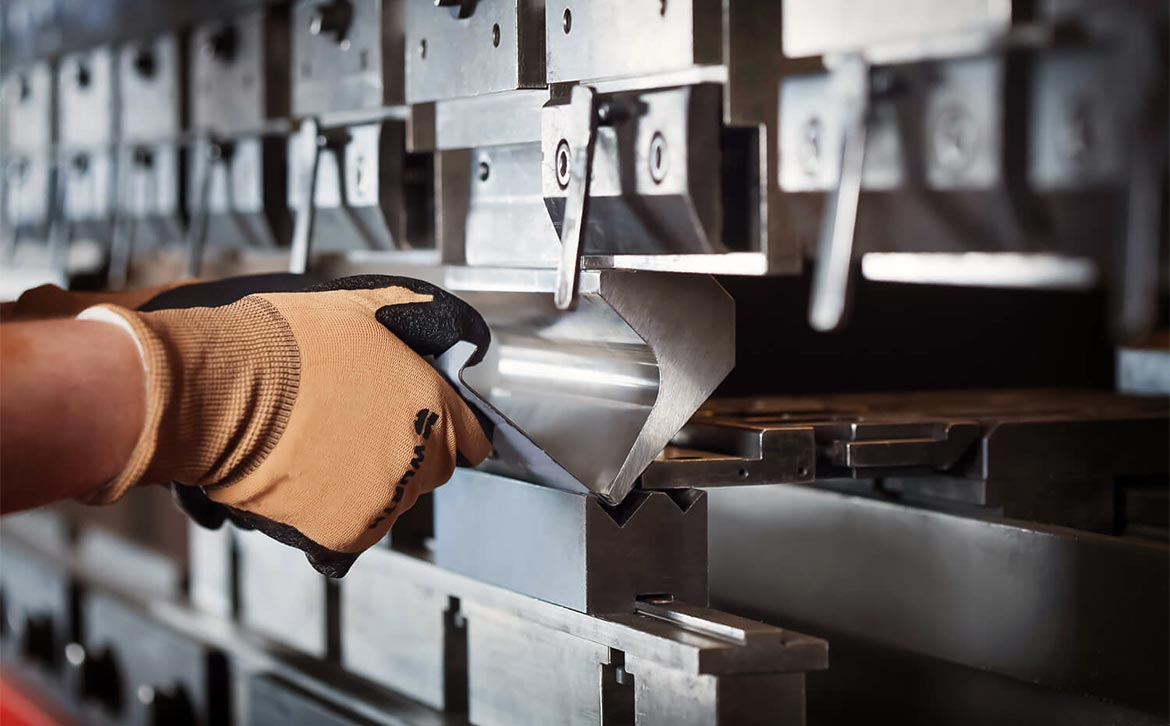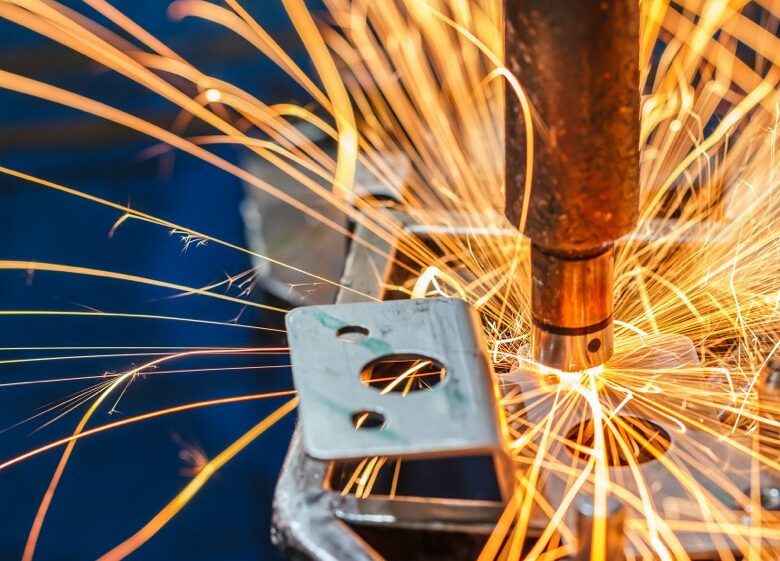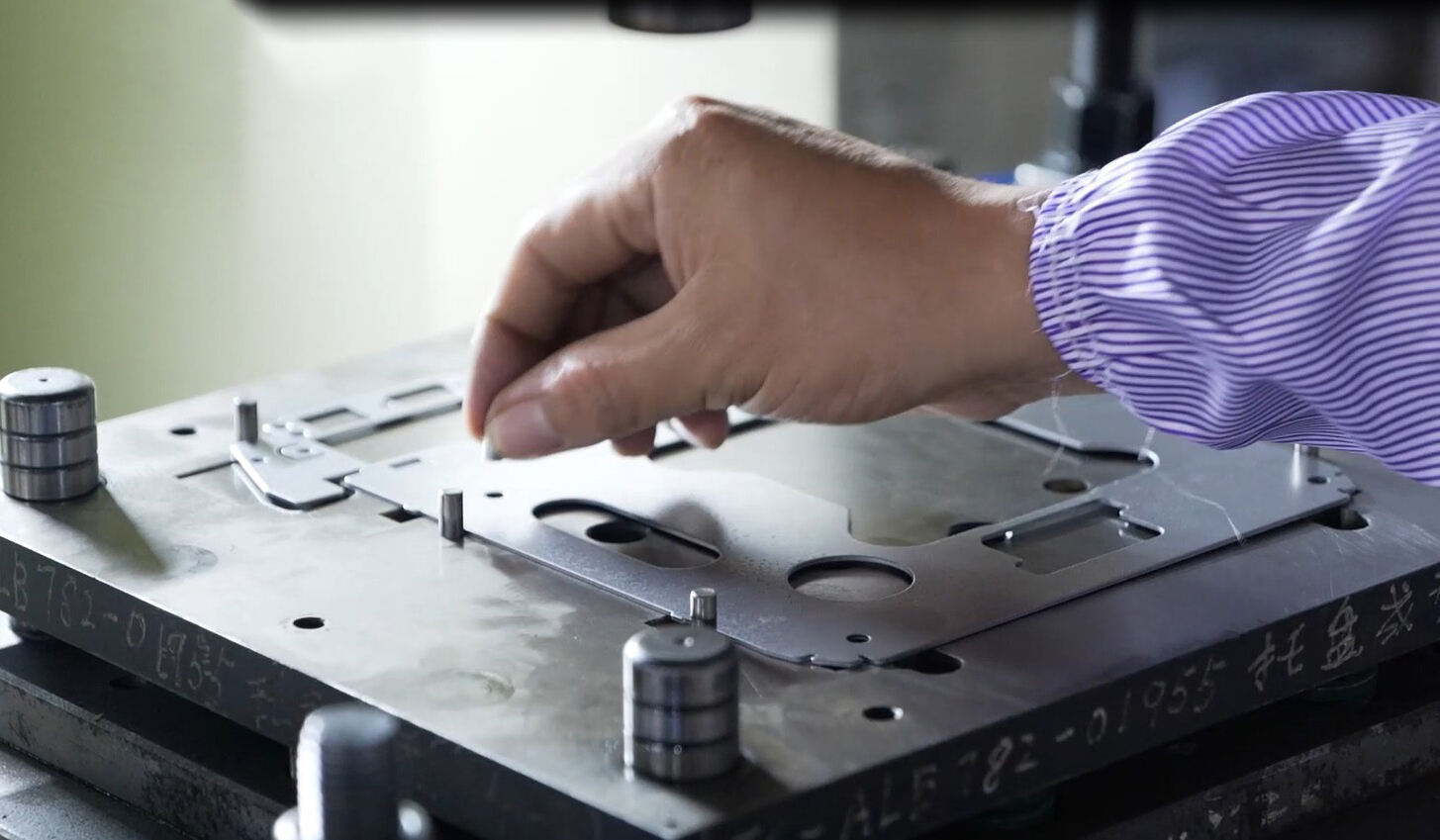Precision metal stamping is a foundational technique in sheet metal fabrication, renowned for its efficiency in mass production. This process leverages a variety of specialized machinery, including mechanical and hydraulic presses, to shape metal with unmatched precision. The key to achieving high precision involves factors such as meticulous die design and the careful selection of materials. For instance, in the automotive and electronics industries, case studies have demonstrated the pivotal role of precision metal stamping in producing components with stringent quality standards. Notably, high-volume stamping processes are statistically proven to boost production rates significantly while maintaining cost-efficiency, making them indispensable in large-scale manufacturing operations.

When it comes to forming complex shapes in sheet metal, advanced bending techniques such as CNC bending and press braking are paramount. These processes rely heavily on accurate measurements and well-calibrated machinery to achieve the desired outcomes. An array of complex shapes achievable through these methods can be seen in industries like automotive and aerospace, where precision and complexity are the norm. Tolerances and angles play a crucial role, with industry standards often guiding the extent to which materials can be bent without compromising structural integrity. Such standards ensure that the resulting products meet the rigorous demands of their intended applications.

Laser cutting technology has revolutionized modern manufacturing, offering superior precision and speed compared to traditional methods. Over the years, laser technology has evolved, improving material versatility and application scope. For instance, within the electronics sector, laser cutting facilitates the creation of intricate designs that are otherwise impossible with conventional cutting methods. Emerging trends like fiber lasers are pushing the envelope further, providing enhanced material versatility and opening new possibilities in metal fabrication. These advancements underscore the critical role of laser cutting in enhancing manufacturing capabilities and efficiency.

Welding is vital for ensuring structural integrity in metal fabrication and encompasses techniques like MIG, TIG, and spot welding. Each method is tailored to specific materials and applications, critical for maintaining safety and reliability in various structures. The quality of welds is paramount, often defined by standards such as those set by the American Welding Society (AWS) and International Organization for Standardization (ISO), which assure adherence to quality benchmarks. Attention to weld quality not only ensures the strength of the finished product but also enhances its durability against environmental and operational stresses.

Riveting is an established method for joining sheet metal components, especially valued in high-speed production environments. Its unique advantages over other joining methods include enhanced reliability and impressive speed, particularly in assembly line applications within industries like aerospace and automotive. Riveting excels in scenarios demanding strong, long-lasting joints, proving superior in terms of reliability and efficiency on production lines. Supported by statistics highlighting its advantages, riveting remains a preferred choice for many manufacturers seeking to streamline operations while maintaining structural integrity.

Sheet metal fabrication plays an essential role in the automotive industry, especially as demand for lightweight and durable components grows. In particular, the production of specific components like battery wire connectors has gained prominence due to the surge in electric vehicle (EV) adoption. Battery wire connectors are crucial for efficient energy transfer and performance in EVs, and using high-grade materials ensures longevity and reliability. The emerging trend of lightweight automotive components aligns with the industry's focus on enhancing fuel efficiency and overall vehicle performance.
Recent industry collaborations between sheet metal fabricators and automotive manufacturers have paved the way for innovative solutions. These partnerships help streamline production processes and ensure that components like battery wire connectors meet stringent standards. As the automotive sector evolves, the integration of advanced technologies in sheet metal fabrication will be instrumental in developing increasingly efficient and sophisticated components.
The aerospace industry demands exceptionally high standards for materials and processes due to safety and performance requirements. Sheet metal plays a significant role in fabricating structural elements that contribute to an aircraft's integrity and performance. For instance, components such as fuselage panels and wing reinforcements are crafted using advanced sheet metal techniques to meet tolerance specifications and ensure passenger safety.
Technological advancements in aerospace manufacturing include the use of lightweight alloys and composites. These materials, paired with precise fabrication methods, offer significant weight reductions without compromising strength. Aircraft models across the industry benefit from these innovations, enhancing fuel efficiency and operational range. As aerospace technology continues to progress, sheet metal fabricators are poised to support the development of next-generation aircraft designs.
In the construction sector, sheet metal products such as ductwork and roofing panels play a critical role in both residential and commercial projects. Custom sheet metal fabrication is pivotal in meeting specific project requirements, offering solutions that blend functionality with aesthetic appeal. By tailoring solutions to fit unique architectural designs, fabricators help construction companies execute their visions seamlessly.
The adoption of metal in construction projects is on the rise, supported by its durability, recyclability, and energy efficiency. This trend is also backed by statistical data, which shows a significant increase in the use of metal materials worldwide. Furthermore, sustainability considerations, such as end-of-life recyclability and energy-efficient properties, make sheet metal an attractive choice in modern construction. As green building practices gain traction, the role of sheet metal fabrication will only expand further.
Metal enclosures are crucial for protecting electronic components from physical damage and electromagnetic interference. The fabrication of these enclosures requires precision, allowing for enhanced cooling and effective shielding. This ensures that electronic devices operate reliably even in challenging conditions, making them indispensable across various sectors, including telecommunications and consumer electronics.
Sheet metal fabrication allows for the customization of these enclosures to meet diverse regulatory standards and industry specifications. The resulting hardware solutions are particularly critical for industries that require highly specialized enclosures to function optimally. The trend towards advanced, custom electronics enclosures underscores the importance of sheet metal fabrication in enhancing the functionality and longevity of electronic systems.
Professional sheet metal services ensure enhanced durability in harsh environments through the selection of robust metals like stainless steel and aluminum. These materials are essential for industries such as oil and gas, military, and food processing, where resistance to extreme temperatures and corrosive elements is critical. For instance, oil rigs use sheet metal components to withstand aggressive offshore conditions. Additionally, professional standards such as ISO and ASTM help assess and certify the metal robustness needed for these demanding applications, providing assurance of performance and longevity.
By leveraging professional sheet metal services, businesses can achieve cost-effective mass production. This efficiency is attained through optimized manufacturing processes that minimize material waste and energy consumption. Statistical evidence highlights that companies experience significant cost savings, up to 20%, when employing streamlined supply chains and automated machinery. Furthermore, economies of scale are realized by partnering with seasoned fabricators, resulting in long-term financial benefits and reinforced competitive positioning in the marketplace.
The integration of CAD/CAM technology in sheet metal fabrication allows for unparalleled design flexibility and customization. This advanced technological approach accommodates unique client specifications across diverse industries, including aerospace and automotive. For instance, the ability to simulate and test designs virtually reduces the need for physical prototypes, cutting lead times drastically. Studies have shown that incorporating these software solutions can reduce lead times by up to 30%, enhancing the capacity to swiftly address market demands and client needs.
Automation through robotic systems has revolutionized sheet metal fabrication by significantly enhancing precision and reducing labor costs. These advanced systems ensure meticulous control over dimensions and shaping processes, which is pivotal for maintaining high-quality standards. Moreover, the integration of robotics leads to streamlined operations, lowering the dependency on manual labor and mitigating human errors. For instance, in a recent study, facilities that employed robotic systems observed a productivity increase of over 30%, underscoring the transformative impact of automation on production lines. This leap in technology not only boosts operational efficiency but also ensures that fabricators can meet demanding production timelines while maintaining stellar quality.
The implementation of sustainable material recycling practices within sheet metal fabrication marks a significant stride toward environmental responsibility. These practices contribute to waste reduction and energy savings, making them an essential part of modern manufacturing. Statistics reveal that recycling sheet metals can lead to a reduction in energy consumption by approximately 95% when compared to traditional extraction and processing methods. This initiative also aligns with the growing consumer demand for eco-friendly products and practices. By adopting recycling processes, companies not only reduce their carbon footprint but also appeal to a more environmentally conscious market, thus leveraging sustainability as a competitive advantage.
ISO certification is a hallmark of quality and reliability in manufacturing processes. It provides a structured framework for maintaining high-quality standards through rigorous protocols. These certifications ensure that every step, from design to production, adheres to globally recognized benchmarks, thereby guaranteeing the consistency and safety of products. Industries such as automotive, aerospace, and healthcare heavily rely on ISO-certified fabricators because compliance is crucial for both regulatory and safety concerns. By following these protocols, fabricators not only enhance their credibility but also assure clients of their commitment to excellence and continuous improvement in production capabilities.


Copyright © 2024 by Xiamen Tongchengjianhui Industry & Trade Co., Ltd. - Privacy policy